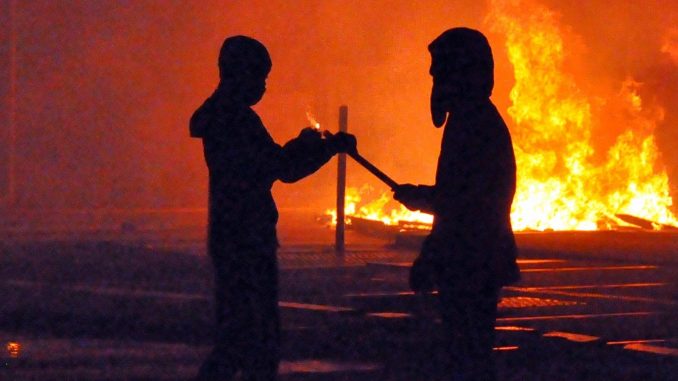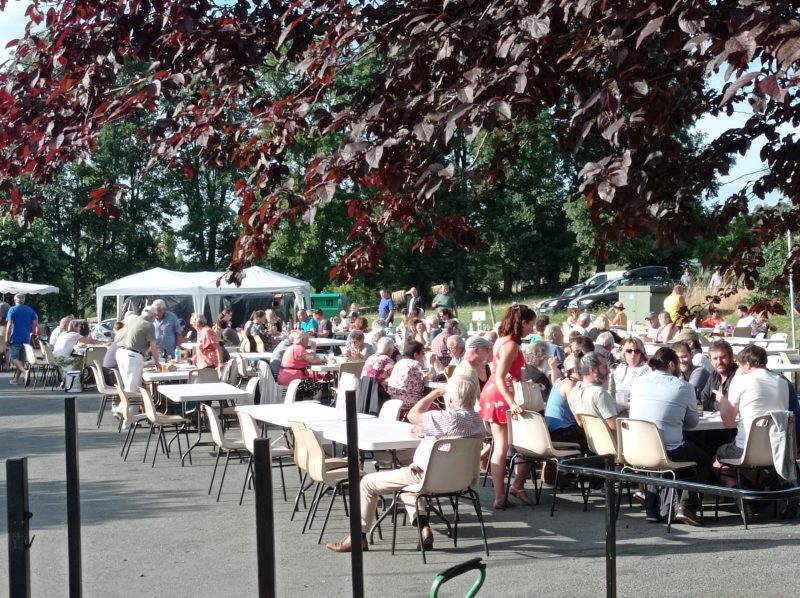
Please don’t let me be misunderstood.
This time around I find myself thinking about inclusivity and its importance in any society. As an immigrant, you inevitably wonder just how well you fit into your adopted society. This thought process has been triggered, fairly obviously I expect, by recent events here in France and the killing of Nahel Merzouk, a French citizen but of Algerian and Moroccan descent. It was a truly tragic situation that spilled over into a series of riots, with many people injured and a lot of damage to cities across the country.
Nahel Merzouk, just 17 years old, attempted to drive away after being stopped for a traffic violation and was fatally shot by a police officer. Merzouk himself was unarmed. The sad reality is that, much like young black people in the UK, youths of Arabic descent find themselves much more targeted by the police than white citizens of the same age and there’s plenty of evidence to suggest that, much like recent findings about the Metropolitan police in the U.K., the Gendarmerie here also suffers from a certain amount of institutionalised racism. But the problems go deeper than racism within the police force. While the French government has, on the face of it, done much to improve the prospects for society as a whole – unemployment is particularly low at present, while foreign investment into France is at its highest level for many years – few of these prospects reach those living in ‘Les Banlieues’, the suburbs of France’s major cities where many of the country’s ethnic minorities are concentrated. Where opportunities for employment are poor, and disaffected youth feel marginalised, the drug gangs invariably move in and make use of young people as drug couriers, offering them a chance to make money where society can offer them nothing but the dole queue and subsistence living. It seems that Merzouk was known to the police and had been “of interest” to them, but his refusal to comply on a traffic violation should never have resulted in his death and the subsequent riots were almost inevitable in a society that will always hold its government and agencies to account.
The government responded to the violence by deploying over 40,000 law enforcement officers, inevitably making the situation worse and creating confrontations between citizens and police as far afield as France’s overseas territories, with French Guiana being particularly badly affected. It wasn’t until a number of the country’s mayors got together, to initiate rallies at the Town Halls of affected areas and call for an end to the violence and destruction, that an uneasy peace was attained, but tensions remain high. I think the French mayoral system is one to be admired and it is the mayor of a commune who is usually far more in touch with the feelings of their community than other government officials, or the police, can hope to be. The French Government needs to do something to address the lack of inclusivity that many feel in the larger cities and they could do worse than rely on the mayors of these regions for their suggestions and recommendations.

What has been happening in the cities is in sharp contrast to what we experience in our small, rural community. We are, clearly, immigrants, but our French neighbours have made it very easy for us, and others that have moved here, to feel a part of the community. An example of that is the weekly Night Markets that take place in many villages throughout France, ours included, during the months of July and August. For these two months, this once a week community get together will dominate the social calendar. They’re a market in as much as there will be local produce to buy, but the main purpose of the night market is one big communal picnic. This is where you meet the other people of the commune, as well as some from neighbouring communes, where you eat and drink together, listen to some live music and generally pass away the long summer evenings. They’re organised by one of the local Mayor’s Office committees, who put in a huge amount of work to ensure their success and they are rightly popular and always well attended. They allow you to learn about local producers and try some of their wares as well as keeping the community together. They’re a genuinely great idea and, while a community picnic isn’t going to solve the woes of suburban ghettos, they might not be a bad place to start.
How do you solve the problems of integration and inclusivity? I recently reviewed a book by American professor and writer, Mandi Bates Bailey (‘The Down Home Sound’, if you missed the review you can read it here), in which she analysed inclusivity in americana music. She made the valid point that, while the americana genre seeks to promote inclusivity and encourage liberal thought, it still remains a very white, male dominated genre, especially in the land of its origin. How do you encourage minority groups into a community? Americana openly encourages songs that address the issues of race, of gender, of exclusion. It throws its arms wide and says we’re liberal minded and progressive and we welcome everyone – and there are some successes. We’ve seen black artists, like former Carolina Chocolate Drops members Rhiannon Giddens and Dom Flemons, establish successful careers in americana. Similarly, individuals from the LGBQT+ community, such as Brandi Carlile, Lil Nas X and long established acts like K.D. Lang and the Indigo Girls show that there is a degree of inclusivity and diversity, but is it enough, given the open door policy americana seeks to promote? Are these the exceptions that prove the rule?
I’m not really sure where all my rumination has landed me, except a realisation that inclusivity, in any community, never comes easily. It’s something that has to be worked at but an open arms policy is, surely, a good start. I can see the advantages of our village Marché de Nuit and the chance to break bread with friends and neighbours and you can see that music that encourages diversity also brings rewards. Whether either of these positive approaches offer any solutions on a wider scale I really couldn’t say, but we have to start somewhere.
Musically, it got me thinking about the many good americana songs about exclusion and the plight of immigrants and minorities. Americana has always been good at offering up songs that highlight societal problems and this whole subject reminded me of some gems. First up is a song that’s a long term favourite of mine, Woody Guthrie’s brilliant ‘Deportees (Plane Wreck at Los Gatos)’, written in 1948 after reading a report of the Los Gatos Canyon Crash. It’s considered to be his last great song, though it was more of a chant when Woody originally composed it. The tune we more commonly associate with it was written by schoolteacher Martin Hoffman some ten years later. Here we have Arlo Guthrie‘s version of his father’s song. Steve Earle could be considered a modern day Woody Guthrie, such is his commitment to the plight of the less fortunate and to writing songs on their behalf. ‘City of Immigrants’ was written when Earle relocated from Nashville to New York and is in support of his view that “every great city in the world had been built by immigrants”. Finally, I turned to British singer/songwriter Lucy Rose, who writes so many good songs and this reflection on the plight of the refugee, ‘Is This Called Home’, must number among her best. We all need a home.
I’m going to lighten up for next month’s column, honest!
À bientôt.


